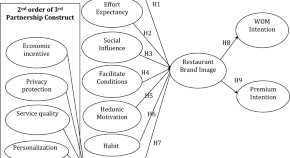Let us hear the voice of the audience: groups facing the risk of cultural exclusion and cultural accessibility in Vojvodina province, Serbia
Authors (first, second and last of 9)

Collection
Tourists represent one of the most diverse types of consumers, including a large group of people with disabilities. Many of them frequently face physical, sensory, cognitive, or cultural barriers in service provision and delivery. These barriers may occur in any of the typical tourist experience phases - inspiration seeking, planning, booking, experiencing, and sharing, and they are not limited to any specific type of travel or to a tourism setting. On the other hand, tourism as a technology-dependent industry relies heavily on information technology, and that trend has been even more pronounced with the recent use of Tourism 4.0 technologies and approaches, such as the Internet of Things (IoT), Big Data Analytics, Artificial Intelligence (AI), Blockchain, Location-based Services or Virtual and Augmented Reality Systems. This could potentially further hamper the co-creation of tourist experiences for people with disabilities (and others), despite Tourism 4.0 aiming to provide more sophisticated electronic accessibility (e-Accessibility). At the same time, Tourism 4.0 technologies have the innate qualities to mitigate many accessibility issues and turn them into possibilities by relying on tourists bringing their own devices and by promoting advanced approaches in system design and use.
With this special issue of Universal Access in the Information Society (UAIS), we aim to identify gaps in the current notion of e-accessibility practices in tourism industries that are usually narrow and task-oriented, but also to identify new possibilities brought by Tourism 4.0 technologies that focus on interoperability, virtualization, decentralization, real-time data gathering and analysis capability, service orientation, and modularity. We seek novel ideas and further research directions that will allow for the creation of more inclusive tourism capable of providing more meaningful and stimulating experiences accessible to all types of consumers. We welcome theoretical, methodological, and empirical research, of both a technological and non-technological nature.
Topics of specific interest
Important aspects and topics to be discussed evolve around (but are not limited to):
* Accessibility issues of Tourism 4.0 technologies in tourist experience phases (inspiration, planning, booking, experiencing, and sharing)
* Examples of innovative use of more inclusive tourism-specific interactive systems (e.g. a booking engines, self check-ins, in-room voice assistants, assistive restaurant robots, smartphone tourism applications, social media sharing)
* Technical accessibility aspects of key underlying technologies - tourism websites, touchscreens, voice human-computer interaction, artificial intelligence, immersive technologies, Big data analytics, blockchain, etc)
* Designing tourism-specific scenarios of frictionless and inclusive tourism experiences based on Tourism 4.0 technologies
* Anticipated repercussions for the future of more accessible Tourism 4.0 technologies for tourism demand and supply.
The Autonomous University of Barcelona, Spain
University of Novi Sad, Serbia
Uglješa Stankov is a Full Professor at the Department of Geography, Tourism and Hotel Management, Faculty of Sciences, University of Novi Sad. His main research areas are the strategic role of information technology in tourism experiences and mindful tourism experiences. Uglješa actively cooperates with researchers and professional organizations from the world and currently participates in several international projects dealing with digital media accessibility.
University of Southern California, USA





